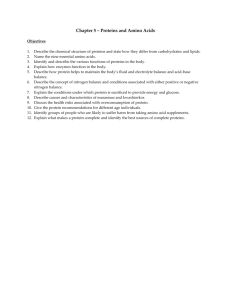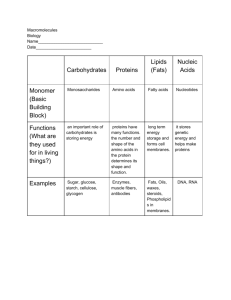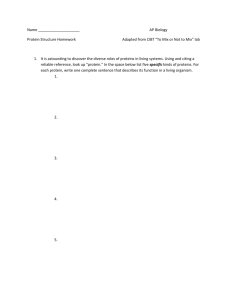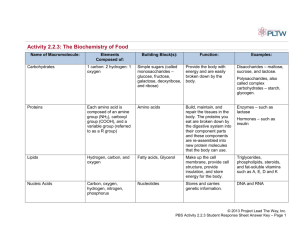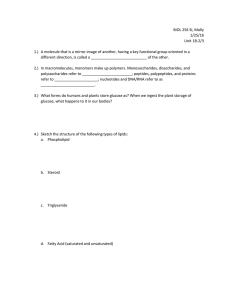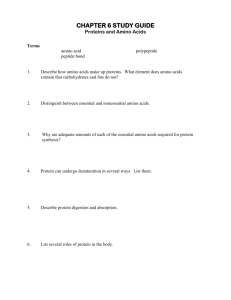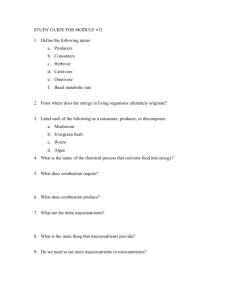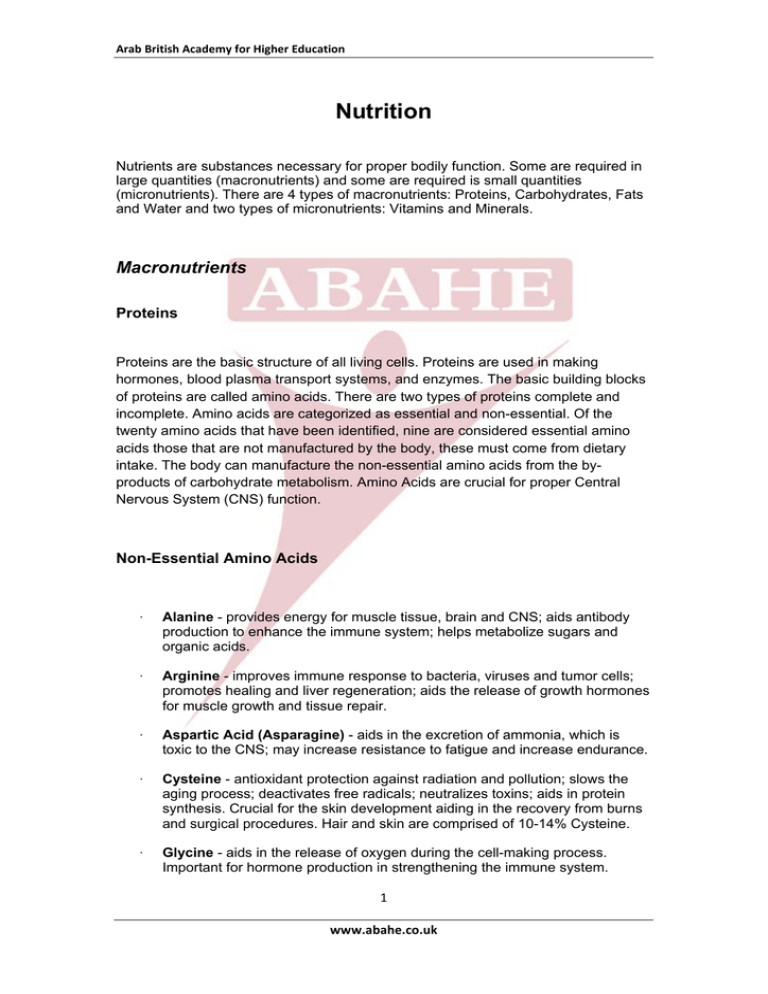
Arab British Academy for Higher Education Nutrition
Nutrients are substances necessary for proper bodily function. Some are required in
large quantities (macronutrients) and some are required is small quantities
(micronutrients). There are 4 types of macronutrients: Proteins, Carbohydrates, Fats
and Water and two types of micronutrients: Vitamins and Minerals.
Macronutrients
Proteins
Proteins are the basic structure of all living cells. Proteins are used in making
hormones, blood plasma transport systems, and enzymes. The basic building blocks
of proteins are called amino acids. There are two types of proteins complete and
incomplete. Amino acids are categorized as essential and non-essential. Of the
twenty amino acids that have been identified, nine are considered essential amino
acids those that are not manufactured by the body, these must come from dietary
intake. The body can manufacture the non-essential amino acids from the byproducts of carbohydrate metabolism. Amino Acids are crucial for proper Central
Nervous System (CNS) function.
Non-Essential Amino Acids
·
Alanine - provides energy for muscle tissue, brain and CNS; aids antibody
production to enhance the immune system; helps metabolize sugars and
organic acids.
·
Arginine - improves immune response to bacteria, viruses and tumor cells;
promotes healing and liver regeneration; aids the release of growth hormones
for muscle growth and tissue repair.
·
Aspartic Acid (Asparagine) - aids in the excretion of ammonia, which is
toxic to the CNS; may increase resistance to fatigue and increase endurance.
·
Cysteine - antioxidant protection against radiation and pollution; slows the
aging process; deactivates free radicals; neutralizes toxins; aids in protein
synthesis. Crucial for the skin development aiding in the recovery from burns
and surgical procedures. Hair and skin are comprised of 10-14% Cysteine.
·
Glycine - aids in the release of oxygen during the cell-making process.
Important for hormone production in strengthening the immune system.
1 www.abahe.co.uk Arab British Academy for Higher Education ·
Glutamic Acid (Glutamine) - improves mental capabilities; helps healing of
ulcers; reduces fatigue; helps control alcoholism, schizophrenia and sugar
cravings.
·
Taurine - stabilizes membranes excitability in the control of epileptic seizures.
Controls biochemical changes responsible for the aging process; aids in the
excretion of free radicals.
·
Proline - promotes proper joint and tendon function; strengthens heart
muscles.
·
Serine - storage source of glucose for the liver and muscles, antibody
production enhances the immune system, synthesizes fatty acid covering
around nerve fibers (insulator).
Tyrosine - transmission of nerve impulses to the brain; fights depression; improves
memory and mental alertness; promotes the proper function of the adrenal, thyroid
and pituitary glands.
All Rights Reserved © Arab British Academy for Higher Education 2 www.abahe.co.uk

